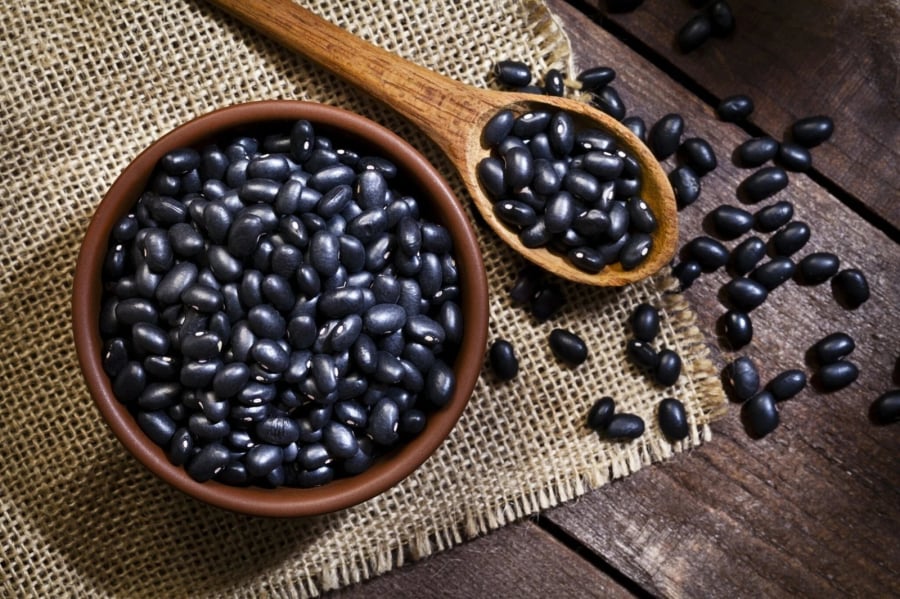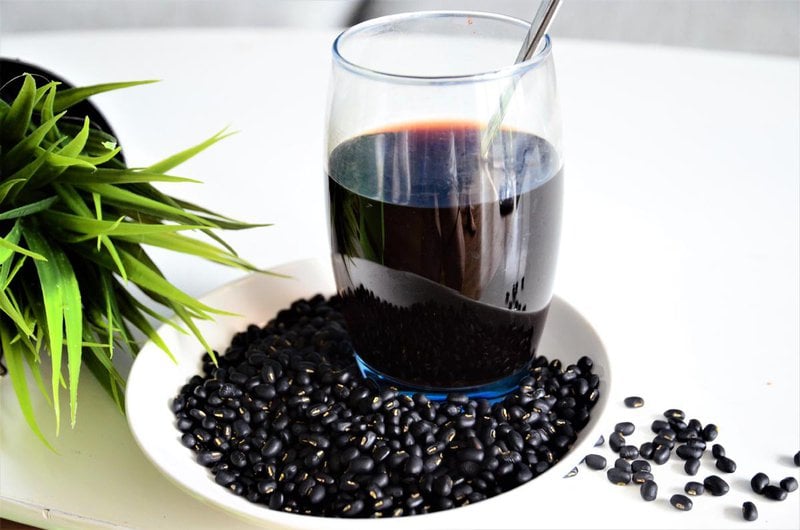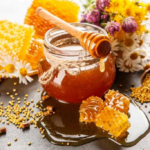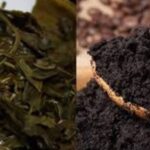Dr. Bui Thi Yen Nhi, a first-class specialist working at Ho Chi Minh City University of Medicine and Pharmacy, shared that black beans are a type of legume known for their exceptional nutritional value and extensive health benefits, making them a popular choice for many. This bean variety boasts an array of essential nutrients, including protein, anthocyanin, calcium, magnesium, and several B-complex vitamins.
In traditional medicine, black beans, also known as black soybeans, have a sweet taste and neutral properties, and are non-toxic. They are believed to tonify the kidneys, aid digestion, possess diuretic properties, reduce edema, and help clear heat and detoxify the body. Black beans are commonly used to treat conditions such as yin deficiency, thirst, dizziness, blurred vision due to kidney weakness, frequent urination, back pain, fatigue, and excessive sweating.

Black beans are used to treat various conditions, including yin deficiency, thirst, dizziness, blurred vision due to kidney issues, and more.
Scientific studies have shown that black beans have diuretic effects, help prevent edema, improve intestinal function, and relieve constipation. Additionally, their high antioxidant content aids in neutralizing free radicals, boosting immunity, promoting beauty, and supporting eye health. Notably, black bean water is also considered beneficial for postpartum women, as it stimulates lactation and is ideal for those with sedentary office jobs.
According to Dr. Nhi, black beans provide calcium and magnesium, contributing to bone health and preventing osteoporosis. This food is rich in isoflavones and lecithin, which play a positive role in combating atherosclerosis and reducing bad cholesterol. Furthermore, the fiber in black beans helps lower cholesterol levels and prevents cardiovascular diseases.
Dr. Nhi recommends consuming one to two cups of black bean water daily, while also ensuring adequate plain water intake. “The daily amount of black bean water should not exceed 1/3 of the total required water intake, meaning adults should consume less than 500ml of black bean water for the best results,” emphasized Dr. Nhi.
Here are some important considerations for individuals who should exercise caution when consuming black bean water:
People with high uric acid levels
Patients with elevated uric acid levels in the blood should refrain from drinking black bean water due to the relatively high purine content in black beans. Purines are metabolized into uric acid in the body, so those with gout or high uric acid levels must be cautious to avoid exacerbating their condition.

Individuals with high uric acid levels should avoid black bean water due to its purine content.
People prone to bloating
Although the risk of bloating from consuming black bean water is lower than from direct bean consumption, it may still contain difficult-to-digest oligosaccharides. Those prone to bloating, abdominal pain, or digestive issues should proceed with caution when drinking it.
Renal insufficiency patients
For individuals with reduced kidney function (eGFR below 60ml/ph/1.73m² of body surface area), the ability to excrete potassium ions is impaired. As black bean water contains significant amounts of potassium, excessive consumption can lead to hyperkalemia, resulting in symptoms such as fatigue, weakness, numbness, cardiac arrhythmias, and chest discomfort.
Pregnant women in the early stages of pregnancy
During the initial stages of pregnancy, women are advised to avoid drinking black bean water due to the presence of natural estrogen (isoflavones) in black beans, which may stimulate uterine contractions.
Individuals with a history of allergies
Those with allergies to other types of beans are advised against drinking black bean water to prevent severe reactions such as skin itching, edema, and swelling in the mouth and throat.
Additionally, it is recommended to avoid drinking black bean water right before bedtime due to its diuretic properties, which may cause frequent nighttime urination and disrupt sleep quality.
The Magic of Tea: Discover the Surprising Uses of Tea Beyond the Cup
The humble tea bag, often discarded after a single use, is actually a treasure trove of nutrients and beneficial compounds. Green tea, in particular, offers a plethora of health benefits, and with a little creativity, we can fully utilize every tea leaf to its maximum potential, thus saving money and optimizing the value of our tea.







































